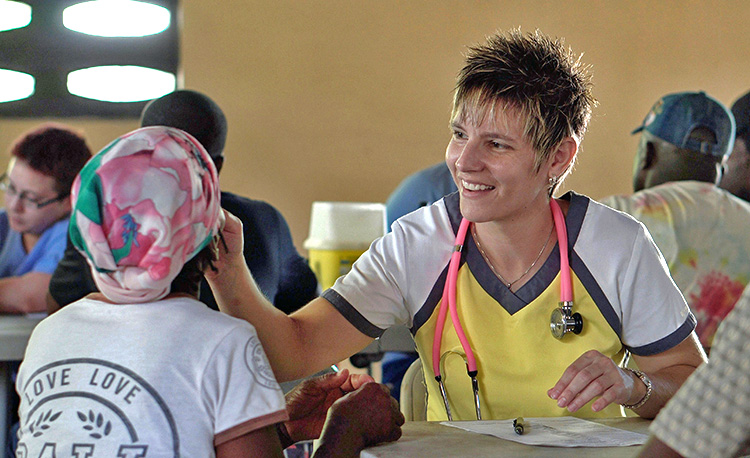How Travel Benefits Nursing Students: Exploring the Intersection of Adventure and Healthcare
Nursing, by its very nature, is a profession that transcends geographical boundaries and cultural divides. It is a calling that demands empathy, compassion, and a deep understanding of the diverse needs and backgrounds of patients.
 explore the world through nursing
explore the world through nursingBut what can nursing students do when they lack experience and face seemingly insurmountable problems with their studies? The first logical decision is to hire a nursing paper writing service and get qualified academic support. The second solution is to travel and gain first-hand experience.
By immersing themselves in different cultures and healthcare systems, nursing students can gain invaluable insights that will shape their approach to patient care and equip them with the necessary tools to navigate the complexities of a globalized world.
Enhancing cultural competency through travel
Cultural competency is a critical aspect of nursing practice, as it enables healthcare professionals to provide culturally appropriate care and effectively communicate with patients from diverse backgrounds. The exposure to these different perspectives through travel can help students:
- Appreciate the nuances of cultural beliefs and practices related to health and illness.
- Develop strategies for overcoming language barriers and building trust with patients from diverse backgrounds.
- Recognize the impact of cultural factors on healthcare decision-making and treatment adherence.
- Cultivate a mindset of cultural humility, which involves acknowledging and respecting cultural differences while remaining open to learning.
Through travel, nursing students can challenge their own assumptions, broaden their perspectives, and develop the necessary skills to provide culturally sensitive care, ultimately enhancing patient outcomes and satisfaction.
Gaining hands-on experience in different healthcare settings
Travel provides nursing students with the opportunity to get hands-on experience in a variety of healthcare settings, ranging from rural clinics to large metropolitan hospitals. This exposure allows them to:
- Observe and participate in diverse healthcare delivery models.
- Familiarize themselves with different medical technologies and equipment.
- Develop a deeper understanding of healthcare challenges unique to specific regions or populations.
- Witness firsthand the impact of socioeconomic factors on healthcare access and outcomes.
By immersing themselves in these diverse settings, nursing students can broaden their practical knowledge, refine their clinical skills, and develop a more comprehensive understanding of the complexities involved in delivering quality healthcare across various contexts.
 get qualified and travel
get qualified and travelExploring different healthcare systems and approaches
Healthcare systems and approaches can vary significantly across different countries and regions. Travel allows nursing students to explore and compare these diverse systems, gaining valuable insights into their strengths, challenges, and unique characteristics.
By immersing themselves in different healthcare environments, nursing students can:
- Observe and understand the organizational structures, policies, and regulations that govern healthcare delivery in various contexts.
- Analyze the allocation of resources and the prioritization of healthcare services in different places.
- Examine the roles and responsibilities of healthcare professionals within different systems.
- Identify the best practices and innovative approaches that can be adapted or implemented in their home environments.
Learning about global health issues and disparities
Travel provides nursing students with the opportunity to witness the impact of global health issues and disparities on different populations. By visiting diverse communities, they can gain a deeper understanding of the social determinants of health, such as poverty, access to clean water and sanitation, and the availability of healthcare resources.
Through travel experiences, nursing students can:
- Observe the unique health challenges faced by communities in different regions.
- Develop an appreciation for the role of public health initiatives and preventive measures in addressing global health issues.
- Explore strategies for promoting health equity and reducing disparities in healthcare access and quality.
- Gain insights into the cultural, economic, and environmental factors that contribute to different health outcomes.
By developing a comprehensive understanding of global health issues and disparities, nursing students can become advocates for change and contribute to efforts aimed at improving healthcare access and outcomes for underserved populations worldwide.
Enhancing communication and teamwork skills
Effective communication and teamwork are essential components of successful nursing practice. Travel experiences provide nursing students with opportunities to develop and refine these critical skills by working alongside healthcare professionals from diverse backgrounds and navigating cross-cultural communication challenges.
Through travel, nursing students may:
- Enhance their ability to communicate effectively with patients and healthcare professionals from different cultural backgrounds.
- Develop strategies for overcoming language barriers and fostering clear communication.
- Collaborate with interdisciplinary teams comprising professionals with diverse perspectives and expertise.
- Cultivate active listening skills and the ability to navigate cultural nuances in communication.
- Practice conflict resolution and negotiation strategies in cross-cultural contexts.
By honing their communication and teamwork skills, nursing students can better prepare themselves for the collaborative nature of healthcare delivery, ultimately enhancing patient outcomes and fostering a more cohesive and effective healthcare team.
Resources for nursing students interested in travel opportunities
For nursing students eager to embark on transformative travel experiences, there are numerous resources available. Here are some you should consider:
- Study Abroad Programs: Many nursing schools offer study abroad programs specifically designed for nursing students. These programs typically involve coursework, clinical rotations, and immersive cultural experiences in different countries.
- International Nursing Organizations: Organizations such as Nursing Students Without Borders, the International Council of Nurses (ICN), and the International Confederation of Midwives (ICM) offer various travel and volunteer opportunities for nursing students.
- Global Health Programs: Many universities and healthcare organizations offer global health programs that provide opportunities for nursing students to participate in medical missions, research projects, or healthcare initiatives in underserved communities around the world.
- Student Exchange Programs: Some nursing schools have partnerships with international institutions, allowing for student exchange programs where nursing students can study and gain clinical experience in different countries.
- Online Resources: Websites like GoAbroad.com, StudyAbroad.com, and GoOverseas.com provide comprehensive lists of study abroad programs, volunteer opportunities, and internships for nursing students interested in international experiences.
- Scholarships and Grants: Various organizations and foundations offer scholarships and grants specifically designed to support nursing students pursuing international experiences or global health initiatives.
It is essential for nursing students to thoroughly research and carefully evaluate potential travel opportunities to ensure they align with their academic and professional goals, as well as their personal interests and values.
Other Travel Articles
Do you have feedback, a comment or correction? Let us know
